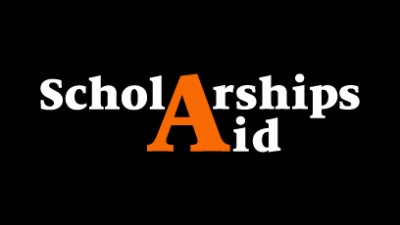
Robert Muharremi
Assistant Professor and In-House Legal Counsel/Advisor
Robert Muharremi
Assistant Professor and In-House Legal Counsel/Advisor
Bio
Dr. Robert Muharremi is Assistant Professor at RIT Kosovo and Dean of Faculty at RIT Tirana (Albania). He lectures international law & organizations, international relations, human rights and law & politics. Dr. Muharremi has served as advisor for various international organizations and government institutions in Kosovo and has extensive experience as legal counsel in the private corporate and public-private partnership sector. He has served in the Office of the Prime Minister, the Ministry of Foreign Affairs, the Ministry of Justice, and in other government agencies as adviser on legal and policy issues, and he has actively participated in numerous policy and legislative activities. Dr. Muharremi is a member of the Albanian Branch of the International Law Association. He has published extensively on topics related to international law, international justice, and public policy. He holds a doctorate in law from the University of Saarland (Germany) and a Master of Science degree in public policy and management from SOAS/University of London (UK).
Select Scholarship
Muharremi, R. (1999). Hintergründe und Ausmaß der zwangsweisen demographischen Veränderungen im ehemaligen Jugoslawien. In W. Fiedler, Deportation, Vertreibung und Ethnische Säuberung, Bonn.
Muharremi, R. (1999). Die Haager Landkriegsordnung und das Verbot von Vertreibung und Deportation. In W. Fiedler, Deportation, Vertreibung und Ethnische Säuberung, Bonn.
Muharremi, R. (2005). Treuhandverwaltung zwischen Friedenswahrung, Souveränität und Selbstbestimmung: eine völkerrechtliche Analyse der Verwaltungsmission der Vereinten Nationen im Kosovo. Baden-Baden: Nomos
Muharremi, R. (2010). The European Union Rule of Law Mission in Kosovo (EULEX) from the Perspective of Kosovo Constitutional Law. Heidelberg Journal of International Law, 70 (1), 357-379.
Muharremi, R. (2010). A Note on the ICJ Advisory Opinion on Kosovo. 11 German Law Journal, 11 (8), 867-880.
Muharremi, R. (2011). Public-Private Partnership Law and Policy in Kosovo. European Public-Private Partnership Law Review, 6 (3), 111-119.
Muharremi, R. (2013). The Role of the United Nations and the European Union in the Privatization of Kosovo’s Socially Owned Enterprises. German Law Journal, 14 (7), 889-925.
Muharremi, R. (2014). Conflicting Rules of Recognition: UN Security Council Resolution 1244 or the Constitution of the Republic of Kosovo. German Law Journal, 15 (4), 719-733.
Muharremi, R. (2014). A New Public-Private Partnership Development Strategy for Kosovo. European Public-Private Partnership Law Review, 9 (4), 278-281.
Muharremi, R. (2016). The Kosovo Specialist Chambers and Specialist Prosecutor’s Office. Heidelberg Journal of International Law, 76 (4), 967-992.
Muharremi, R. (2017). The Challenge of Introducing New Public Management to Kosovo’s Healthcare Sector. Journal of Croatian and Comparative Public Administration, 17 (1), 7-28.
Muharremi, R. (2018). Preferential Procurement under Bilateral “Tied Aid” Agreements vs. Non-Discrimination under EU Stabilization and Association Agreements. European Procurement & Public Private Partnership Law Review, 13 (2), 129-137.
Muharremi, R. (2018). The Concept of Hybrid Courts Revisited: The Case of the Kosovo Specialist Chambers. International Criminal Law Review, 18 (4), 623–654.
Muharremi, R. (2019). The Kosovo Specialist Chambers from a Political Realism Perspective. International Journal of Transitional Justice, 13(2), 290–309.
Muharremi R. & Dragusha N. (2019). Secession and Self-Determination. Palgrave Encyclopedia for Peace and Conflict Studies
Muharremi, R. (2020). Hybrid Courts and Transitional Justice. Palgrave Encyclopedia for Peace and Conflict Studies.
Muharremi, R. (2020). United National Interim Administration Mission in Kosovo. Palgrave Encyclopedia for Peace and Conflict Studies.
Muharremi, R. (2020). Establishing Institutions under International Administration: The Case of Kosovo. Croatian and Comparative Public Administration 20 (1), 7-28.
Muharremi, R. (2021). The “Washington Agreement” Between Kosovo and Serbia. American Society of International Law Insights, Vol. 25, Issue 4.
Muharremi, R. (2021). The Institutions of the European Union. In Qorraj, G. & Hash, I. (Eds.), European Union and the Western Balkans, Bangkok, Celje & Lublin: ToKnow Press.
Muharremi, R. (2022). Kosovo zwischen internationaler Verwaltung und staatlicher Unabhängigkeit. In Kötter, M. et. al (Eds.), Rechtsstaatsf&
Currently Teaching
In the News
-
March 14, 2023

RIT Kosovo (A.U.K.) attended the Global Governance Summit at RIT Dubai
The RIT Kosovo (A.U.K) President, Kamal Shahrabi and RIT Kosovo (A.U.K) Faculty, Albina Balidemaj, Robert Muharremi, and Venera Demukaj participated in the Global Governance Summit held at RIT Dubai.
The event gathered representatives from the Academic Senates and the Presidents from the Rochester Campus in New York and the global campuses in China, Croatia, Kosovo, and the United Arab Emirates.










